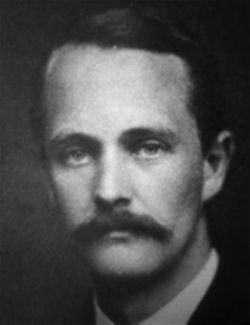The Text is taken from Buchan's Ballads of the North of Scotland, where it is entitled The Gowans sae gay. This ballad is much better known in another form, May Colvin (Collin, Collean).
The Story.--Professor Child says, 'Of all ballads this has perhaps obtained the widest circulation,' and devotes thirty-two pages to its introduction. Known in the south as well as in the north of Europe, the Germans and Scandinavians preserve it in fuller and more ancient forms than the Latin nations.
In the still popular Dutch ballad Halewijn, Heer Halewijn sings so sweetly that the king's daughter asks leave to go to him. Her father, mother, and sister remind her that those who have gone to him have never returned; her brother says he does not care where she goes, if she retains her honour. She makes an elaborate toilet, takes the best horse in the king's stables, and joins Halewijn in the wood. They ride till they come to a gallows with many women hanged upon it. Halewijn offers her the choice of the means of her death, because she is fairest of all. She says she will choose the sword, but that Halewijn had better take off his coat, as it would be a pity to splash it with her blood. As he takes it off, she cuts off his head, which, however, continues to talk, suggesting she should blow his horn to warn his friends. She does not fall into this rather obvious trap, nor will she agree to his suggestion that she should rub his neck with a certain ointment. As she rides home, she meets Halewijn's mother, and tells her he is dead. She is received back with great honour and affection in her father's castle.
This is the best form of the story, but many others only a little less full are found in Flanders, Denmark, Sweden, Norway, Iceland, Germany (nearly thirty variants which fall into three main divisions found respectively in North-West, South, and North-East Germany), Poland (where it is extraordinarily common), Bohemia, Servia, France, North Italy, Spain, and Portugal; and a Magyar ballad bears a certain resemblance. On the whole, the English ballad here printed (but not May Colvin) and the Danish, Swedish, and Norwegian ballads, would seem to be the best preserved, on account of their retention of the primary notion, that the maid first charms the knight to sleep and then binds him. In May Colvin and many of the other European versions, the knight bids her strip off her gown; she asks him to turn away his face as she does so, and when he is not looking, she pushes him into the river or sea.
The remarkable likeness existing between the names of the knight in the many languages, e.g. Halewijn (Dutch), Ulver, Olmar, Hollemen (Danish), Olbert (German), and Elf-knight in English, has caused some speculation as to a common origin. Professor Bugge has gone so far as to conjecture that the whole story is an offshoot of the tale of Judith and Holofernes, the latter name being the originals of the variants given above. While this hypothesis is perhaps too startling to be accepted without further evidence, it must be allowed that there are resemblances in the two stories; and as for the metamorphosis of Holofernes into Halewijn or Olbert, it is at once apparent that such changes are quite within the possibilities of phonetic tradition; and any one who is unwilling to credit this should recollect the Scottish 'keepach' and 'dreeach' (used together or separately), which are derived, almost beyond belief, from 'hypochondriac.'
May Colvin is one of the few ancient ballads still kept in print in broadside form.
LADY ISABEL AND THE ELF-KNIGHT
1.
Fair lady Isabel sits in her bower sewing,
Aye as the gowans grow gay
There she heard an elf-knight blawing his horn.
The first morning in May
2.
'If I had yon horn that I hear blawing,
And yon elf-knight to sleep in my bosom.'
3.
This maiden had scarcely these words spoken,
Till in at her window the elf-knight has luppen.
4.
'It's a very strange matter, fair maiden,' said he,
'I canna blaw my horn but ye call on me.
5.
'But will ye go to yon greenwood side?
If ye canna gang, I will cause you to ride.'
6.
He leapt on a horse, and she on another,
And they rode on to the greenwood together.
7.
'Light down, light down, Lady Isabel,' said he,
'We are come to the place where you are to die.'
8.
'Hae mercy, hae mercy, kind sir, on me,
Till ance my dear father and mother I see.'
9.
'Seven king's-daughters here hae I slain,
And ye shall be the eight o' them.'
10.
'O sit down a while, lay your head on my knee,
That we may hae some rest before that I die.'
11.
She stroak'd him sae fast, the nearer he did creep,
Wi' a sma' charm she lull'd him fast asleep.
12.
Wi' his ain sword-belt sae fast as she ban him,
Wi' his ain dag-durk sae sair as she dang him.
13.
'If seven king's-daughters here ye hae slain,
Lye ye here, a husband to them a'.'
Lady Isabel And The Elf-Knight
Frank Sidgwick
Suggested Poems
Explore a curated selection of verses that share themes, styles, and emotional resonance with the poem you've just read.
